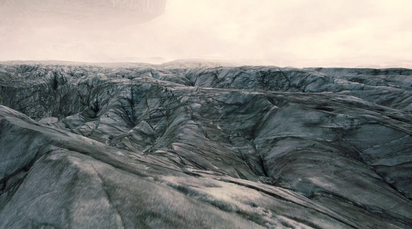No edit summary Tags: Visual edit apiedit |
No edit summary Tags: Visual edit apiedit |
||
| Line 1: | Line 1: | ||
[[File:Mann's planet.png|thumb|397x397px|Mann's Planet]] |
[[File:Mann's planet.png|thumb|397x397px|Mann's Planet]] |
||
| − | ''"Você SABE O Que Enguias fariam Paragrafo MIM, Quando descobriram o Que este planeta Não É?" '' |
||
| − | |||
'''Mann '''is an [http://en.m.wikipedia.org/wiki/Ice_planet ice planet] that orbits the black hole [[Pantagruel & Gargantua|Gargantua]]. The planet is named after the first astronaut to land there named [[Dr. Mann]]. |
'''Mann '''is an [http://en.m.wikipedia.org/wiki/Ice_planet ice planet] that orbits the black hole [[Pantagruel & Gargantua|Gargantua]]. The planet is named after the first astronaut to land there named [[Dr. Mann]]. |
||
Revision as of 00:36, 4 April 2015

Mann's Planet
Mann is an ice planet that orbits the black hole Gargantua. The planet is named after the first astronaut to land there named Dr. Mann.
History
The planet was first visited by Dr. Mann, ten years prior to the launch of Endurance. Upon arrival, Mann realizes his planet's icy surface was uninhabitable. He used his robot companion KIPP to drop probes at nearby locations, searching for the planet's rocky surface. Despite years of probing and research, they found nothing. This demoralized Dr. Mann, yet KIPP was determined to increase the probe's range and continue the search. He cannibalized KIPP, using its power-source for extra energy for his hypersleep chamber, while rigging the robot to explode if someone attempted to accesses its archives - which would unveil the truth about his world. When the Endurance crew arrive, they awaken Dr. Mann, who convinces them that his world is habitable.
The crew immediately begins to deposit equipment, cargo, and living shelters on the planet, with Cooper deciding to use the Endurance to return home soon after. While surveying for a suitable site for the colony, Dr. Mann, knowing his planet is could never sustain human life, attempts to murder Cooper. Mann needed the Endurance to survive and complete Plan-B. Meanwhile, Romilly attempts to access KIPP's archives, but the robot detonates, killing Romily in an explosion. Knowing that Cooper survived, Mann decides to hijack the Endurance in order to start a human colony on Edmunds, but is killed by opening a pressurized hatch of the Endurance with an imperfect dock.
Geography

Mann's surface
Aside from Dr. Mann's falsified analysis of the planet, the planet does have 67 hour-long days and 67 hour-long nights. Despite his initial claims, no surface was ever found, in fact, the planet is honeycombed with seemingly endless layers of frozen ice-cloud crevices and mountains. The gravity is 80% of Earth's gravity. It is so cold on this planet that even the clouds are frozen, giving the disconcerting view of vertical mountains. While the planet has water and an atmosphere, it is thick with ammonia, making it deadly to breathe. The surface temperature is not cold enough to be fatal instantaneously during the day, but is well below at least the freezing point of pure water of 32 degrees F (0 C) or at most the freezing point of pure ammonia of -108 degrees F (-77.8 C).

On the surface of Mann.
Script
In the 2008 version of the script, the crew of the Endurance arrive on the Ice Planet and descend to a habitable, subterranean biosphere, inhabited by an alien ecosystem called "fractal life." They soon discover a Chinese outpost that is largely abandoned, save for a few security androids. They discover that a nearby neutron star sends out pulses of intense radiation once every 24 hours, which presumably killed the Chinese astronauts that attempted to complete its construction. Upon much searching, they fall through a crevice where they find the Gravity Box.
Trivia
- Dr. Mann was marooned on this planet for 35 years, as evidenced by the 23-year time dilation on Miller, the two-year trip to Saturn and the launch of the Lazarus missions which predated Endurance's launch by ten years. Because of cryogenic hibernation, Mann was able to significantly slow his aging, likely eroding his mental health.
- Chemically minded viewers might sneer at Dr. Mann's explanation of the planet's surface, which is supposedly low enough that the chlorine in the atmosphere doesn't reach it (what with chlorine being so heavy that in most atmospheres it should sink to the bottom rather than remain floating at height). A hint of the lie that is told.